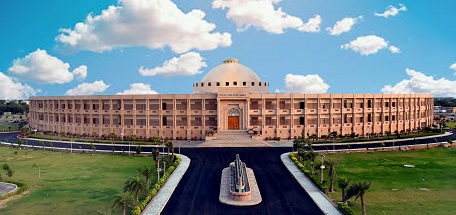Rajasthan High Court Denies Request to End Pregnancy of Minor Rape Victim, Citing Fear of Social Isolation as Insufficient Reason.

The Rajasthan High Court did not allow a minor rape victim to end her approximately 27-week pregnancy due to concerns about social stigma. However, the Court issued several orders to support her during the pregnancy. The Court was reviewing a Writ Petition that requested permission to terminate the pregnancy. A medical board confirmed that the minor was about 27 weeks pregnant. The board’s report indicated that ending the pregnancy would pose greater risks to both the victim and the fetus than continuing it. The victim and her father were worried about negative social perceptions, challenges in finding a marriage partner, and the possibility of being ostracized.
The Single Judge Bench led by Justice Avneesh Jhinghan acknowledged that the statements from the victim and her father are important. However, he stated, “The psychological pressure from society alone is not enough to justify risking two lives.” Advocate Sangeeta Kumari Sharma represented the petitioners, while Additional Advocate General Vigyan Shah represented the State of Rajasthan. The medical board indicated that if the pregnancy is terminated, it would require inducing labor, resulting in a baby that would be very premature and underweight. They noted that even if the baby survives in intensive care, there would likely be significant brain damage. The medical board also mentioned that the risks of terminating the pregnancy are increased due to the woman’s low hemoglobin and platelet counts.
The Court noted that based on the psychological evaluation of the victim and the family’s social situation, the medical board concluded that “continuing the pregnancy would be stressful, and considering both physical and psychological effects, terminating the pregnancy is advisable.” The medical board’s psychological assessment emphasized that the victim and her father fear negative attention from society, which could affect her marriage prospects and lead to social exclusion. The Court stated, “The concerns expressed by the victim and her father are valid and should be taken seriously.” To address these concerns, the Court issued specific instructions. It directed the State Government to ensure the victim’s safety until higher police officials confirm there is no threat. The hospital Superintendent was instructed to provide all necessary medical care free of charge until delivery and afterward. The police were also tasked with maintaining the victim’s privacy.
At birth, the Court stated that the child may be given to the Child Welfare Committee (CWC), and the victim or her guardian must complete the necessary steps to transfer custody to the CWC. The petitioner will not object to the child being adopted by State Agencies to suitable parties as per the law. The CWC will ensure all the child’s needs and services are met. Since the petitioner is a rape victim as mentioned in the FIR, the Court instructed the relevant authorities to act quickly to provide interim compensation to her. The Rajasthan State Legal Services Authorities were also directed to provide compensation. The hospital was instructed to keep two DNA samples and give them to the investigating agency when needed. Due to a dispute regarding the victim’s age, the Court requested the Secretary of Social Justice and Family Welfare to investigate. The Court noted that when deciding on the termination of pregnancy, several factors must be considered, especially the health of the mother and fetus and the likelihood of the fetus surviving. The Court concluded that the conditions of Section 3(2)(b) and Section 5 of the Medical Termination of Pregnancy Act, 1971 were not satisfied in this case. Therefore, the request for pregnancy termination was denied, and the Writ Petition was closed.







